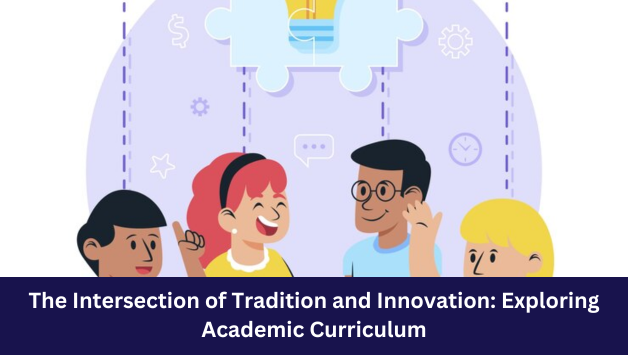Introduction:
In the dynamic landscape of higher education, institutions face the challenge of balancing tradition with innovation to meet the evolving needs of students and industries. Delhi Institute of Higher Education (DIHE), in collaboration with the Top PGDM Colleges in Greater Noida, exemplifies this balance through its academic curriculum. In this article, we delve into how it to navigate the intersection of tradition and innovation to provide a comprehensive and forward-thinking education to its students.
Embracing Traditional Foundations:
The Institute recognizes the importance of traditional academic disciplines as the bedrock of higher education. The curriculum includes core courses in subjects such as mathematics, literature, history, and social sciences, providing students with a solid foundation of knowledge and critical thinking skills. By grounding students in traditional academic disciplines, it equips them with the intellectual breadth and depth needed to navigate complex challenges in a rapidly changing world.
Integrating Contemporary Perspectives:
While honoring traditional disciplines, the Institute also integrates contemporary perspectives and emerging trends into its academic curriculum. Courses in areas such as digital marketing, data analytics, entrepreneurship, and sustainability prepare students for the demands of the modern workforce. By incorporating cutting-edge topics and interdisciplinary approaches, it ensures that students are equipped with the knowledge and skills to thrive in a competitive global environment.
Experiential Learning Opportunities:
The Institute goes beyond traditional classroom instruction to provide students with hands-on, experiential learning opportunities. Internships, industry projects, case studies, and simulations allow students to apply theoretical knowledge to real-world scenarios, gaining practical skills and industry experience in the process. By bridging the gap between theory and practice, it prepares students for successful careers and positions them as leaders in their fields.
Flexible Learning Pathways:
Recognizing that students have diverse learning styles and career aspirations, the Institute offers flexible learning pathways that allow students to tailor their educational experiences to meet their individual needs and goals. Elective courses, specializations, and concentrations enable students to customize their academic journey, deepening their expertise in areas of interest and aligning their education with their career aspirations. By empowering students to design their own learning paths, it promotes autonomy and self-direction in education.
Industry-Relevant Curriculum:
The Institute collaborates closely with industry partners to ensure that its academic curriculum remains relevant and responsive to the needs of the job market. Advisory boards composed of industry experts provide input and guidance on curriculum development, ensuring that courses are aligned with industry standards and best practices. Guest lectures, workshops, and industry visits expose students to real-world perspectives and foster connections with professionals in their fields of study.
Interdisciplinary Approaches:
The Institute embraces interdisciplinary approaches to education, recognizing that complex problems often require multidisciplinary solutions. Courses and projects that span multiple disciplines encourage students to think critically, creatively, and holistically about pressing issues facing society. By breaking down silos between disciplines, it fosters collaboration, innovation, and cross-pollination of ideas among students and faculty members.
Emphasis on Soft Skills:
In addition to technical knowledge, it places a strong emphasis on developing students' soft skills, such as communication, teamwork, leadership, and problem-solving. Courses, workshops, and extracurricular activities provide opportunities for students to hone these essential skills, preparing them for success in the workplace and in life. By nurturing well-rounded individuals with strong interpersonal and professional skills, it equips students for long-term career success and personal fulfillment.
Continuous Learning and Adaptation:
The Institute adopts a culture of continuous learning and adaptation, constantly evolving its academic curriculum to reflect changing industry trends, technological advancements, and societal needs. Regular reviews, feedback mechanisms, and input from stakeholders inform curriculum revisions and updates, ensuring that it remains at the forefront of innovation in higher education. By staying agile and responsive to changing realities, it prepares students to thrive in a dynamic and unpredictable world.
Global Perspectives:
The Institute exposes students to diverse perspectives and global issues through international collaborations, study abroad programs, and cross-cultural experiences. Courses with a global focus, international guest speakers, and cultural exchange programs broaden students' horizons and foster intercultural competence. By preparing students to navigate a globalized world with empathy, cultural sensitivity, and adaptability, it equips them to succeed in an increasingly interconnected and multicultural society.
Commitment to Excellence:
Above all, it is committed to excellence in education, striving to provide students with a transformative learning experience that prepares them for leadership, innovation, and service to society. Rigorous academic standards, dedicated faculty members, state-of-the-art facilities, and a vibrant campus community create an environment conducive to intellectual growth and personal development. By upholding the highest standards of quality and integrity, it cultivates a culture of excellence that inspires students to reach their full potential and make a positive impact on the world.
Conclusion:
Delhi Institute of Higher Education, the Best PGDM College in Greater Noida, exemplifies the delicate balance between tradition and innovation in its academic curriculum, offering students a comprehensive and forward-thinking education that prepares them for success in a rapidly changing world. By embracing traditional foundations while integrating contemporary perspectives, providing experiential learning opportunities, offering flexible learning pathways, collaborating with industry partners, fostering interdisciplinary approaches, emphasizing soft skills, promoting global perspectives, and maintaining a commitment to excellence, it equips students with the knowledge, skills, and values they need to thrive in their academic, professional, and personal lives. As a result, graduates emerge as lifelong learners, critical thinkers, and global citizens poised to make meaningful contributions to society and shape a better future for generations to come.


